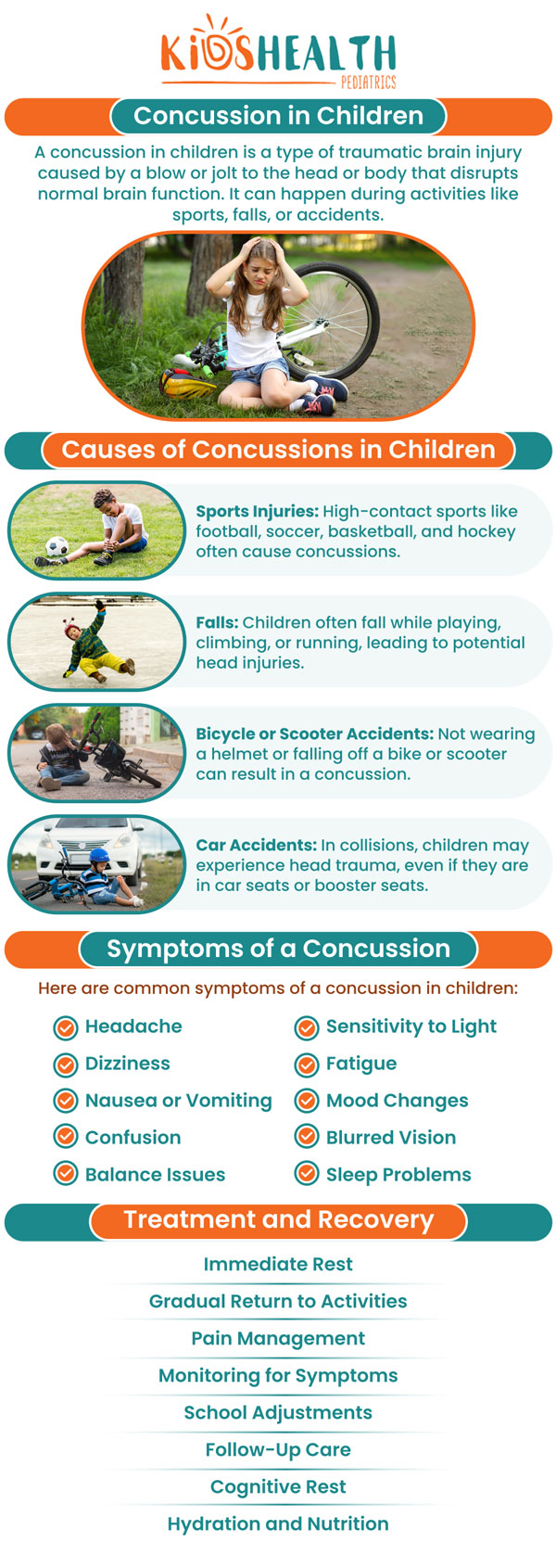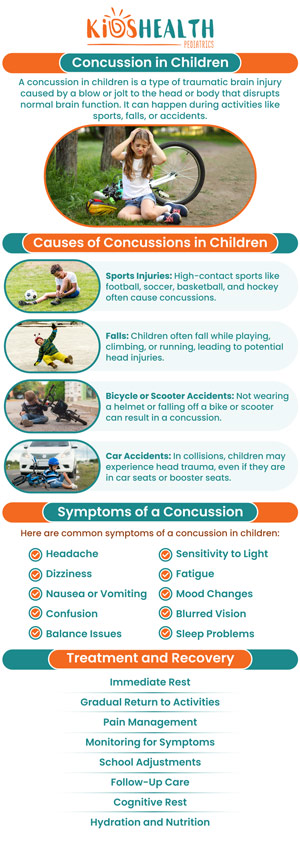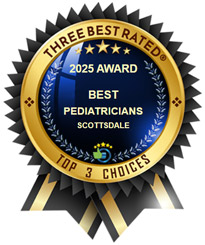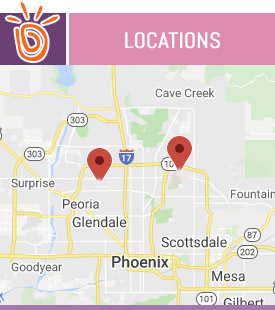Concussion in Children: What Are the Effects?
A concussion is a type of traumatic brain injury that can occur in children. Concussion symptoms may not show up right away and may take several hours or even days to occur. Children who have concussions frequently experience physical side effects, including headaches. Along with a sensitivity to light and noise, they may also experience impaired vision, weariness, dizziness, nausea, vomiting, and fatigue. Memory loss, attention issues, confusion, and feelings of fog or disorientation are some cognitive symptoms. Concession’s effects can differ from child to child. If your child is showing any of these symptoms, visit us. Dr. Maria Nabong. is a board-certified pediatrician who will provide your child with the best care. For more information, reach out to talk to one of our friendly and experienced staff members today or book an appointment online. We Have 2 Pediatric Clinics in Scottsdale, AZ & Glendale, AZ.




Table of Contents:
What are the long-term effects of a concussion on a child?
What are the symptoms after a concussion in children?
How long does it take for a child to recover from a concussion?
What are the common after-effects of concussion?
Children partake in many activities in their day-to-day lives that put them at risk of getting injured, making mild injuries in children almost unavoidable sometimes. They are pretty resilient, but if your child has suffered from a head injury, no matter how minor it appeared to be, it is important to be knowledgeable concerning the indications of a concussion to ensure that your child can receive any medical attention they may require. The symptoms of a concussion in children are fairly similar to those of an adult, but your child will likely not be able to recognize that they have incurred a head injury, so it is up to the parents to be the medical advocate for their children.
Most concussions incurred by children are fairly mild and will heal fully within 10 days of the injury, however, long-term effects can occur if the head injury has not healed properly. It is possible that if the concussion has not healed entirely, the child will return to activities or sports too soon and endure another concussion before the first one has healed, leading to a more severe concussion, and putting them at a higher risk of suffering from long-term effects. These long-term effects can appear differently in each case, with studies showing that children who have had serious concussions are more likely to develop mental health problems for several years following the injury. A common long-term effect of concussions in children is that the brain is unable to fully recover, putting the child at risk of experiencing worsened effects if they were to suffer from a concussion again, potentially leading to permanent brain damage.
If your child has undergone a head injury, there are some symptoms to keep an eye out for to make sure that you seek proper medical attention for them if there is a chance they may have gotten a concussion. These symptoms include:
• Changes or abnormalities in their behavior such as confusion, restlessness, or agitation
• Severe fatigue or struggle to be woken up, loss of consciousness
• Vomiting
• Constant inconsolable crying
• Seizures or convulsing
• Disparities between pupil size
Mild concussion symptoms can also include blurry or double vision, dizziness, memory problems, headaches, confusion, difficulty concentrating, and sensitivity to lighting or noise.
For mild concussions, most children should recover entirely within a week or two. More severe concussions may take a few months before symptoms have completely subsided from the injury. It is common for some symptoms to persist even once the child has healed enough for it to be deemed safe for them to return to their normal activities. It is very important to follow the instructions offered by the healthcare provider who treated your child for the concussion to allow for a complete recovery. Rest is one of the most important aspects of concussion recovery, along with avoiding any activities that may result in another concussion before the first has fully healed to prevent worsened effects or severe brain damage.
Several symptoms are commonly experienced for weeks or even months after the head injury causing the concussion occurred. Also commonly referred to as “post-concussive syndrome,” these after-effects include problems with memory, concentration, and fatigue. It is common for the patient to also continue experiencing frequent headaches, dizziness, mood swings, changes in personality, and insomnia throughout the entire timeline, even if they seem to have recovered from the concussion otherwise. While you should take your child to receive medical attention immediately following the head injury, if the symptoms that were displayed following the initial treatment persist for longer than a couple of weeks, it is recommended that you bring your child in again just to make sure that they are recovering from the injury properly. Mild concussions are not a huge concern as children’s brains can typically heal entirely and face no long-term effects, but they must be able to get to the point where they have recovered entirely to minimize the risk of incurring another concussion before the first has fully healed.
The effects of a concussion can vary from child to child. It is important to seek medical attention if your child has suffered a concussion. KidsHealth Pediatrics specializes in diagnosing, managing, and treating children with concussions. For more information, contact us or schedule an appointment online. We Have 2 Pediatric Clinics in Scottsdale, AZ & Glendale, AZ. We serve patients from Glendale AZ, Peoria AZ, Sun City AZ, Scottsdale AZ, North Scottsdale AZ, Grayhawk AZ, and surrounding areas of Phoenix AZ.

Additional Services You May Need

Additional Services You May Need









